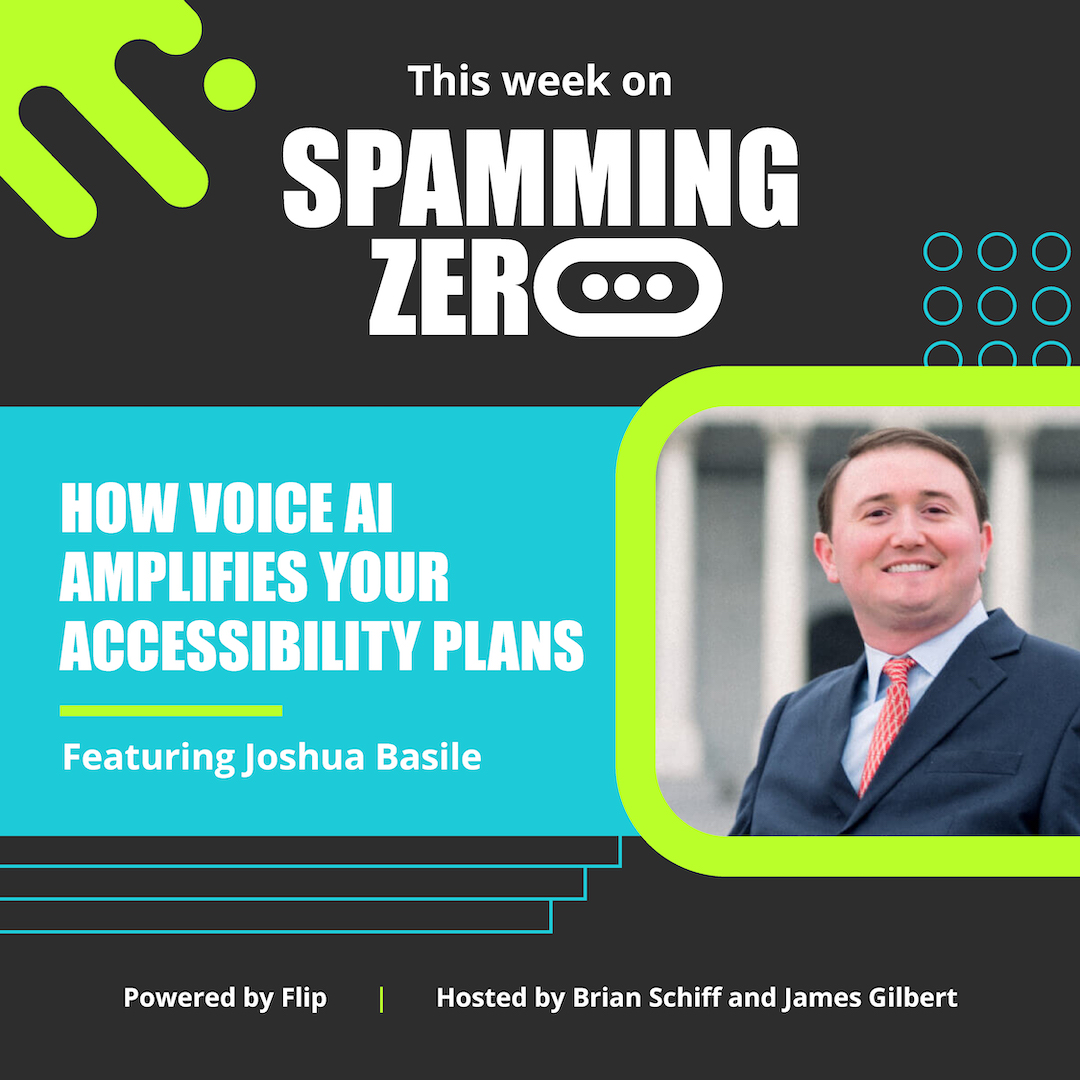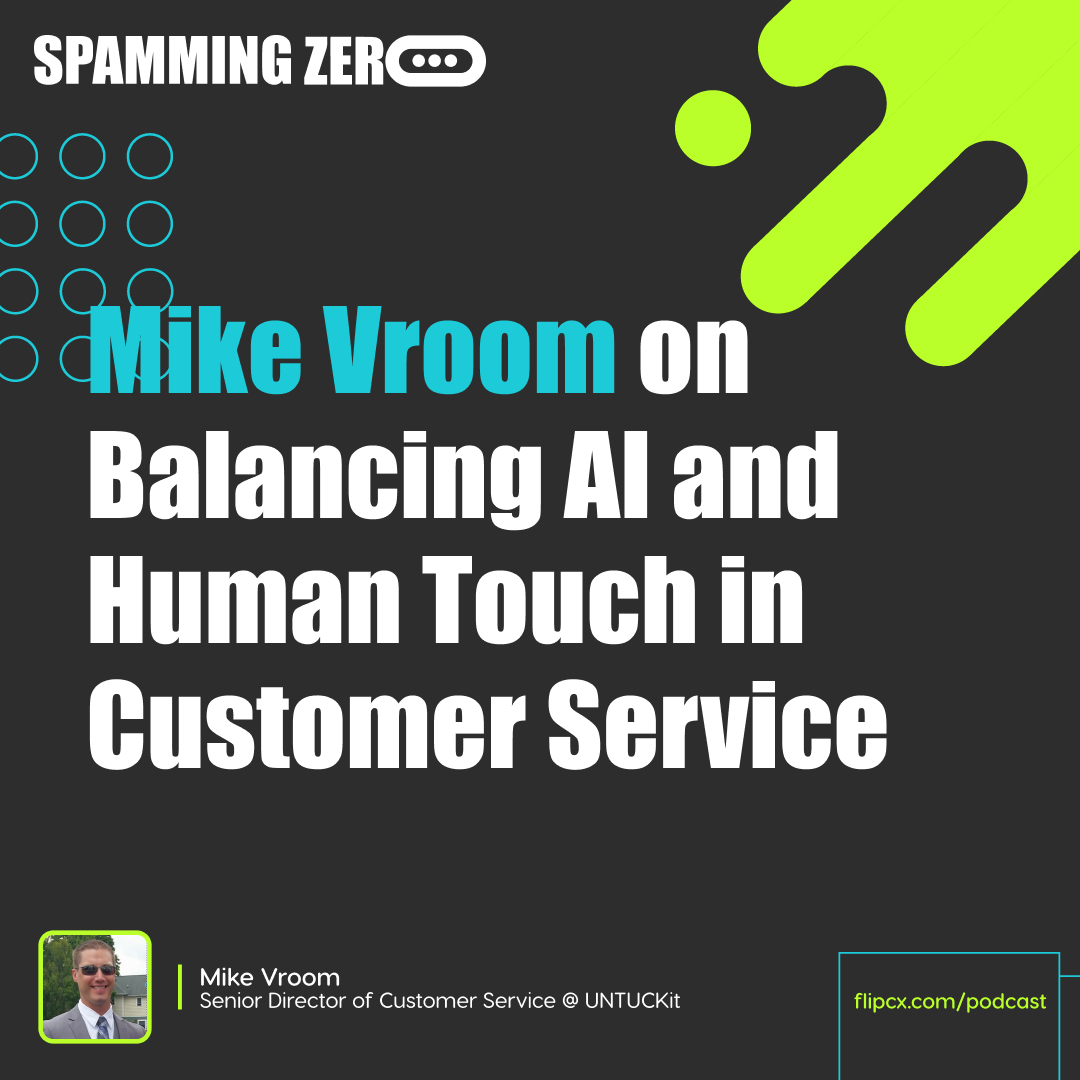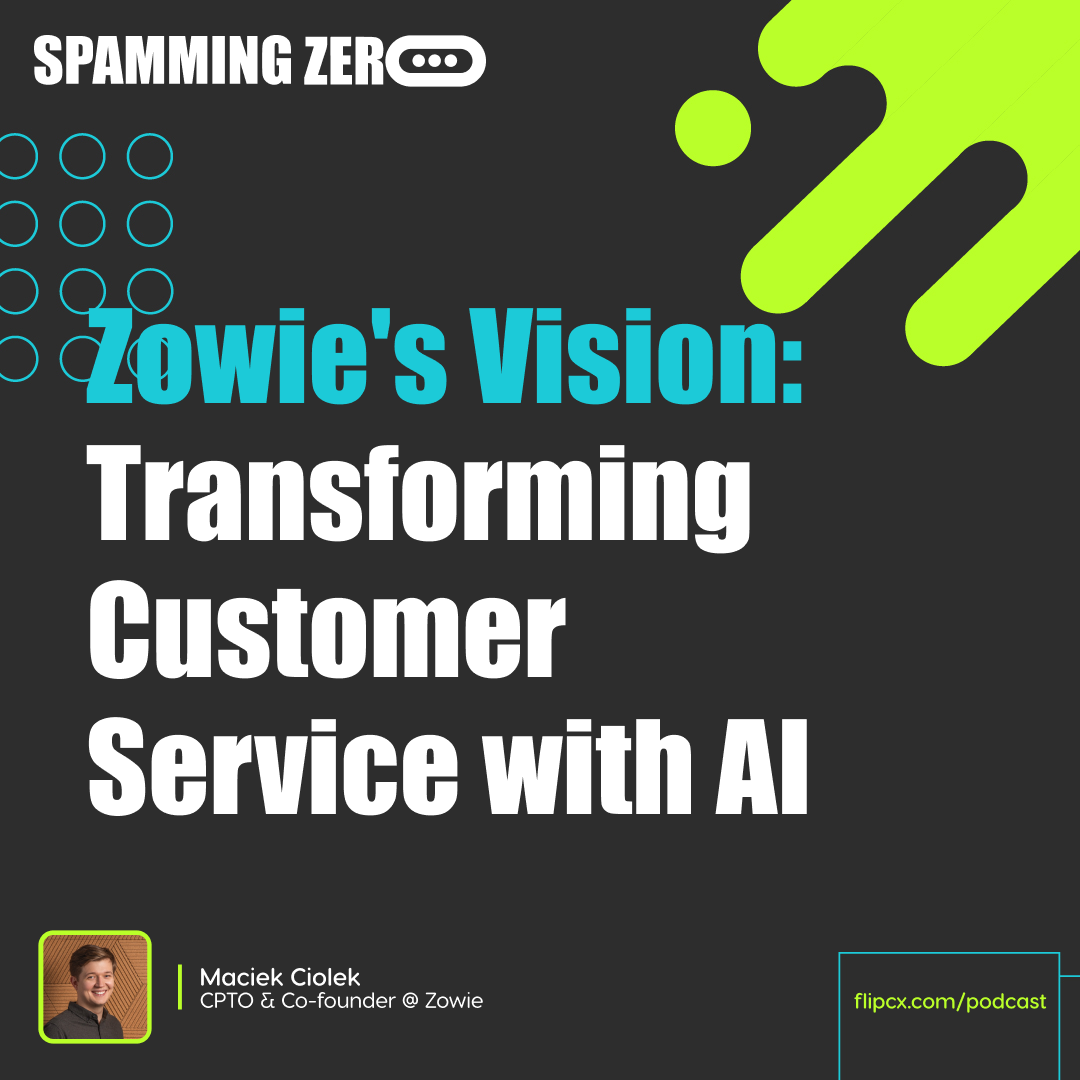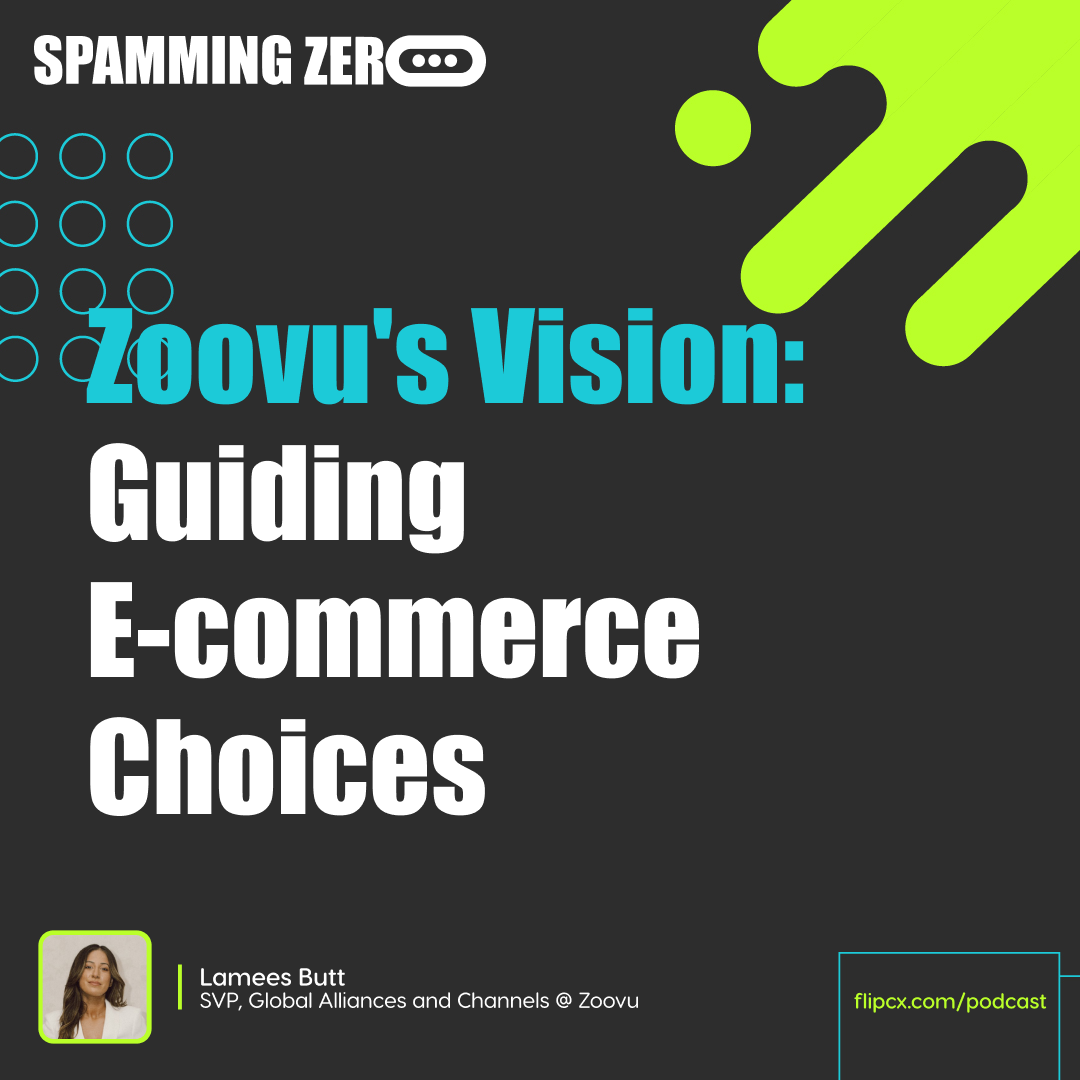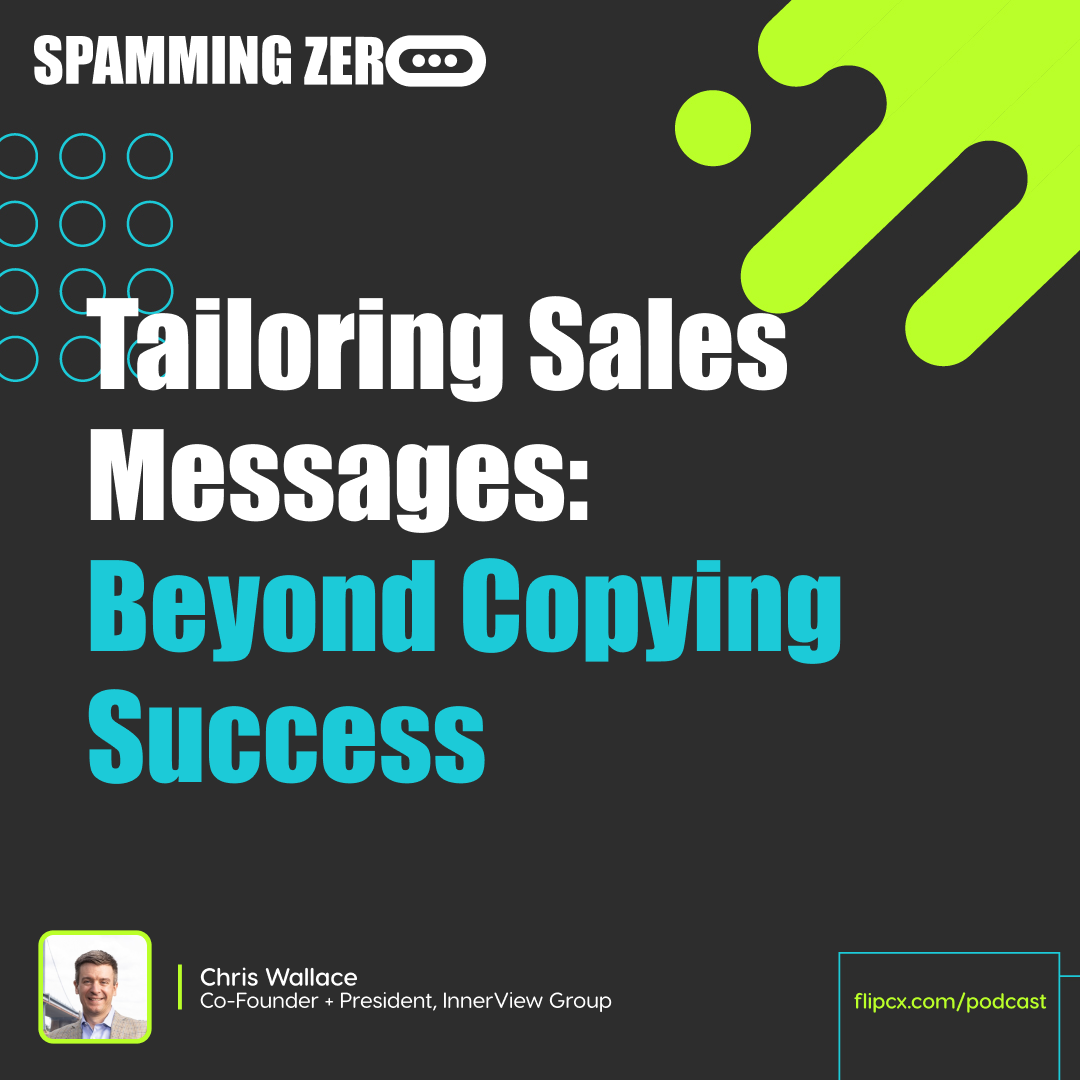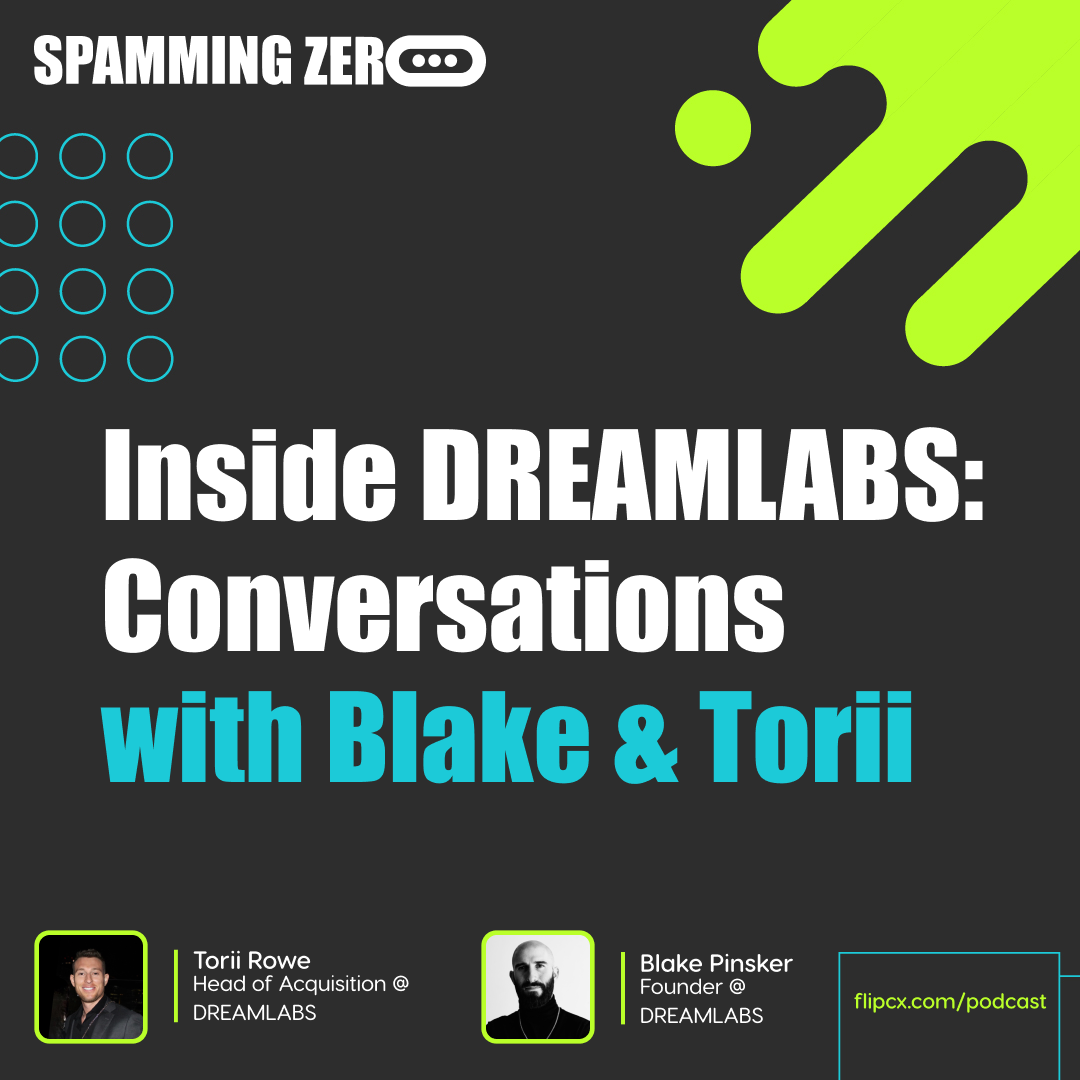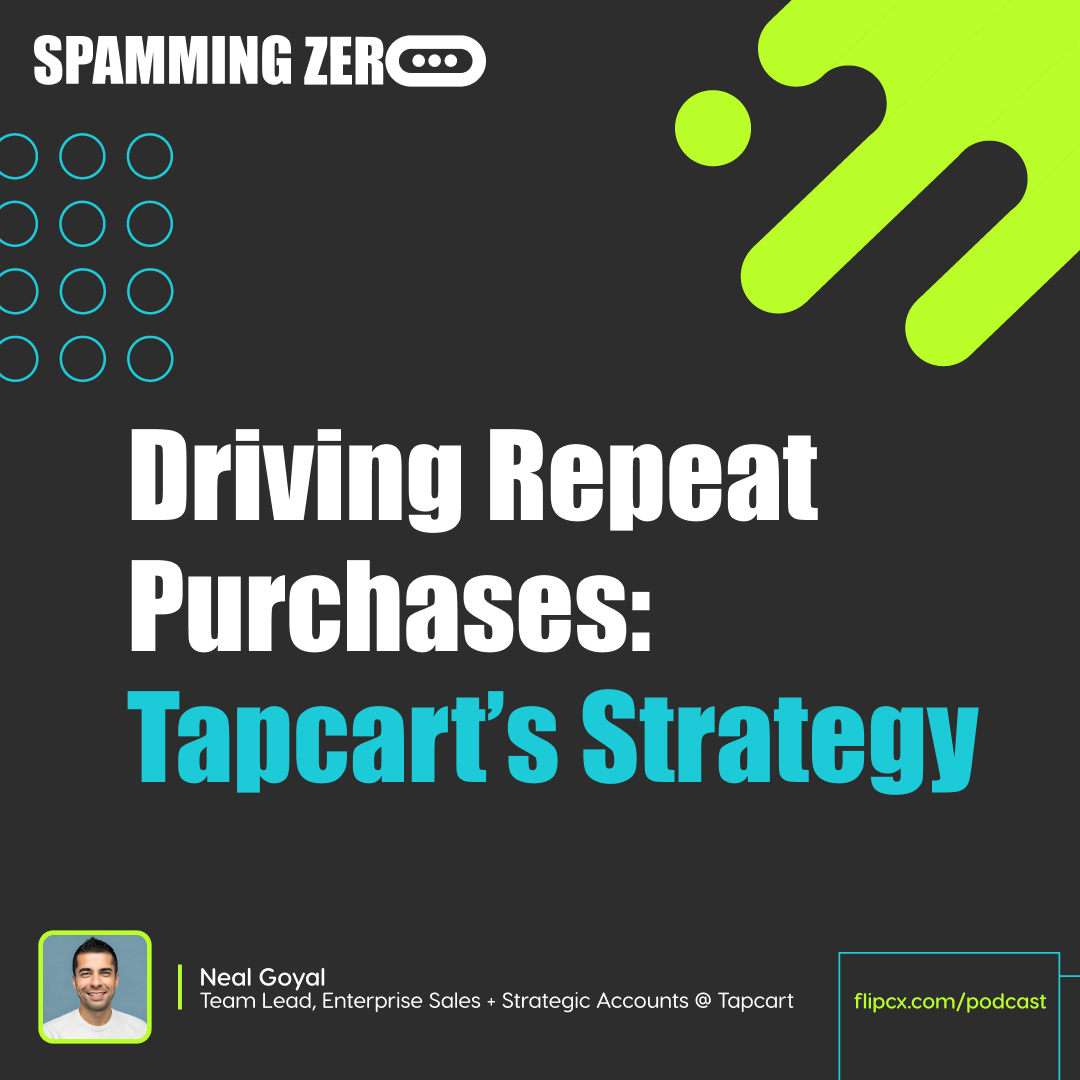Episode 32: How Voice AI Amplifies Your Accessibility Plans
- 0.5
- 1
- 1.25
- 1.5
- 1.75
- 2
James Gilbert: Hey, to all of our listeners out there. This month's sponsor of Spamming Zero is HiOperator. We had Liz Tsai, who is their CEO, on our podcast just a few weeks ago. If you haven't checked that out, make sure you do that. It's amazing. Great episode. We talk about customer service agents, we talk about lifetime value, talk about a lot. So who's HiOperator? I'm going to read directly from the website that HiOperator has. This is a beautiful statement. I love what Liz says here. Customer service is a core pillar of most businesses. It's also one of the hardest parts of the business to scale. Hiring is time consuming, training is time consuming, and volume varies by season, and documentation is constantly in flux. All true, agree a hundred percent. They started HiOperator to make delivering customer service easy. Our mission is to help companies deliver excellent, scalable customer service effortlessly. Our clients can focus on their products and services, and their customers get a great experience when they need help. HiOperator provides a complete customer service as a service solution. Through the power of HiOperator's human plus AI technology, client conversations are handled faster and more accurately. The end result, they deliver amazing customer service, making companies and their customers happy. That's why they exist. That came directly from Liz. Here's some other fundamental stuff that I really like that they do, some value add here. So, train us once. We handle all the recruiting, hiring, and training moving forward. Never have to deal with another classroom retaining or head count headaches. They say this. Send us conversations, send us tickets. We pull the tickets automatically from your preferred CRM, and then you have full control over how and when those tickets are used. Another one, paper resolution. This is something we do at Flip, as well. Charge for the conversation that we actually solve. No onboarding fees, no hourly rates. Pay for what you use. This is HiOperator. And they're this month's sponsor. I'm James.
Brian: And I'm Brian.
James Gilbert: And this is Spamming Zero. Hey everybody, welcome to another episode of Spamming Zero. I'm your host today, James Gilbert. Brian is not going to be joining us today, but we are going to be joined by an incredible guest. I cannot wait for you to hear his story. Josh Basile.
Josh Basile: Thanks for having me on today, James.
James Gilbert: Tell the audience a few things about who you are, and then let's get into the story of your incredible journey.
Josh Basile: I'm 37 years old, and 18 years ago as a teenager, I was in waist high water. I was a college athlete at the time, tennis. Tennis was my sport of choice and was loving life. Just finished my freshman year of college, and I went on a vacation to the beach. And while in waist high water in the ocean, a wave picked me up, threw me over my boogie board, and slammed me on my head. And that day, I heard a loud crack, a crunch noise, and I was face down in the water, unable to move. Luckily, my friends saw me floating, and they came out, pulled me to shore. And next thing I knew, I was waking up 14 days later in the critical unit with a ventilator in my neck, and I was unable to breathe. So the only way I could communicate with my family was by blinking. So blinking once for yes, twice for no. And it was a start to a new life. And about five weeks later, I regained my voice. I was able to wean off the ventilator. And from that moment on, I became an advocate for life and made sure that every word counted. And since then, I've been on a war path of breaking down barriers to accessibility, to address inclusion, and to live my best life. And I've got a new set of sexy wheels to get me around where I need to go. And I went back to school. I started off at a community college after my injury, and I took a poetry course and was able to get out all the things that were on my mind, and was also able to paint a picture of what I wanted my life to look like. And I ended up pursuing that. And a lot of it had to do with mentors, and could talk about that later, and what they taught me, and what I was able to learn from others. But since then, went back to school, then graduated from undergrad, then next thing I knew, I graduate magna cum laude from law school without ever flipping a page. So I'm paralyzed below my shoulders, so I can't move anything. I can move my mouth really well, and my mind. So those are my two best assets. I've been on a very unique journey that I didn't think I would be going down on as a teenager, but I've been able to accomplish a lot with the right attitude and willingness to try.
James Gilbert: Josh, you and I got connected, to give a little plug here for accessiBe, we got connected through them. Now, I want to talk in a little bit more detail about accessibility and the massive amount of brands that miss this. There's a lot of areas of accessibility for sure, but one of them in particular is voice, and the prominence of voice in general, and how it can help. But before we do that, I want to give this story of how we also connected through accessiBe. So if you're not familiar with accessiBe, go check them out. They're amazing. They will help your web properties be accessible to those that need it. They can help change your color schemes, also, on your website so that your color schemes work for those that are visually impaired, like myself. Many on this podcast have heard my story, not in full detail like they just heard yours, but I myself have my share of issues that I had to deal with when I was young, as well, dealing with my eyesight. So voice has become a big part of my life, as well. And one thing that I find really fascinating is how many brands out there, regardless of what industry you're in... You can say, " Oh, we're a B2B company, so this doesn't apply to us." No, it does. There's a significant amount of people in this world that need voice to be part of the accessibility plan that they have. And if you think about it, I think the last time I looked at this, there was 14 million people in the US, and just the US. So I'm not even talking about the whole world, 14 million people that struggle with their eyesight. And that's obviously not you, because you can see just fine. Right? But it's one thing for me. And one of the things that I was really curious about when I wanted to chat with you about this whole idea of accessibility and voice was those 14 million people are a fraction of the folks that in the next five years are going to also have issues with their eyes and need voice to be accessible. So just to unpack that for a second, the amount of people that use devices right now, so have their phones glued to their faces, which we all see. You go to a restaurant nowadays and a couple is not communicating through actual spoken communication. They're almost glued to their phones, on their TikToks and their Instagrams. And it's become one of those things where we're so obsessed with these devices that we have and at our fingertips. And because of that, it's going to have a steady decline of the people that are also going to need accessibility through voice because they're going to have visual impairments even more. And you've done an incredible job of being the community manager at accessiBe, and building a community of folks that can get behind brands that want to focus on that. And I want you to talk to us a little bit about how you've done that, how you've built that community, and how others and other brands can be thinking about what first steps can they take.
Josh Basile: So the best way to build a community is to make sure that they have a seat at the table. So with accessiBe, one of the beautiful things, ever since joining the organization two years ago, which is crazy it's been two years, is that making sure that at every level of the operations, people with many different types of disabilities have a seat, have a voice, have a say. And when you do that, you end up re- changing the conversation because you're having so many unique perspectives, and being able to reshape products marketing. Anything that you want to do, it's the more broader diverse customer base you have, or people you have at the table, the more people you can reach. And by the numbers, like you were talking about the 14 million, if you look at the entire disability community, that's over one fourth of the US population is considered to be living with a disability. And in that disability that's just the people with the disabilities. And then you have the disability community, which the friends, the family, the industries, the healthcare providers, you name it. We're talking about millions upon millions of people. And then, when you get down to the numbers, we're talking about billions in dollars in spending power and disposable income. And every business wants to have reached new customers. Every business, especially in... I've seen in the last five years more so than ever, have been trying to do better within diversity, equity, and inclusion. They want to make sure that it's just not one audience they're serving. They're serving as many different audiences as possible so that they can be on their journey with them as a business. And the second that you shut a door on a specific community, they have a tougher time getting in. And when they do get in, they feel like they're a second class, they feel like they're not being welcomed like everyone else. So being able to bring accessibility to not only your storefront, your physical storefront, but to your digital assets, it's not only the right thing to do, and it helps make sure that you stay within compliance with the law, but it's also just the right thing to do. It's the best business practice. And a lot of times, business owners are... No business really wants to wake up and say, " You know what? We want to make sure people with disabilities cannot be a part of our business, can't have access to our business." No business owner does that. Business owners want to bring in everybody. But without having the right conversations, without inviting people to have a seat at the table, it's just sometimes you just don't know what you don't know. And that's what today, having these conversations, people are like, " Oh yeah, this makes a lot of sense. What can we do to now bring accessibility to our digital assets?"
James Gilbert: What's interesting is when we had our introduction call and we were getting to know each other a little bit, I had mentioned this then, and it feels even more true hearing you say what you just said. Now, I've spent my career in marketing, so I'm going to take a lens from the marketing folks just for a second. Nine times out of 10, so I'm speaking directly to marketers out there, you have the opportunity nine times out of 10 to have some control over a website, the content that goes on a website, and typically how a website operates. Now, you may not be a developer, you may not be the person that's executing that. But nine times out of 10, a marketer is involved in the website. And a big miss is the first impression that people have with the brand is typically the website. And it's amazing to me how many brands out there, or even just myself when I go to websites, and I'm not color blind, but I certainly have a hard time with certain colors and the text of colors being prominent against that background. And it's amazing to me how many people just completely miss it and don't even think about this. As a company and as marketers, you have to think about these things. We live in a world today where, as Josh and I have mentioned, there are millions of people that struggle with these things. And because of that, that means there's millions of ways in which you can actually accomplish some of these things without having to put a ton of resources behind it. Very simple things, like there was a website that I found the other day that allows you to drop in any piece of content, or you can drop in a website, a URL, and it will literally show you what somebody else sees with colorblindness, and how your color scheme is portrayed and seen by them. Now, if you're not color blind, you wouldn't know that, but these kind of tools exist in the world today. I remember when I was going through my situation, I had this... I don't even know what they call it now, but it was this big thing. It weighed about 30 pounds and it sat on my lap. And when I would type, it would read it back to me because I couldn't see, and it would read it back to me. And that was the first introduction in my life, I was 17 at the time, first introduction into my life where I actually got to hear voice technology. And it changed my life. I wouldn't have been able to go to college without it. No doubt about it. There's just a hundred percent no way I would've been able to do it. I couldn't have written my papers without it. So there are little things that can help. And that was way long ago when I was 17 years old. I'm 37 now, too. The technology that exists and the tools that exist to tackle accessibility are more accessible than ever before.
Josh Basile: They're just getting better and better with time.
James Gilbert: Exactly. You think about it, I believe the Alexas of the world, and the Google Voices of the world, and even Siri on our phone, I think that came out maybe 2011 ish, somewhere close to there. Do you know what year those came out? It was somewhere close.
Josh Basile: Somewhere in there. I know 2007, 2008 is when I got my first iPad within school, and that was game changing for me. But no, there's no doubt that where we're at within the technology world, we're in a very special time. And the money, and the time, the energy, the resources, getting the voices with people with disabilities to be part of that movement is advancing it faster than ever, and it's exciting. And when it comes to web accessibility, there's always the best practices. And the best practice first and foremost is to do it from the very beginning with any type... whether it's your website, whether it's with a technology that you're building accessibility into, even if you look at a home. So if you build a home, I'd just be... If you build a home, you want to make sure that it's accessible from day one, or later on, the renovations can be like you're having to scrap all the different things that you had there. And next thing you know, it costs tens of thousands of dollars. It's the same thing with a website. So it's always best in the beginning to make it accessible. But the reality of the time is most homes that I ended up going at to move into are not accessible. So I have to do some type of remodel. And then with websites today, if you look at it, 3% of websites meet accessibility guidelines, which is millions of websites, don't get me wrong. But we have hundreds of millions of websites that exist in the world today that do not meet accessibility guidelines. So accessiBe has a product, a flagship product, called Access Widget, and it basically uses AI powered technology to scan the website and find all the different areas where accessibility is falling short. And then it uses its technology to be able to create accessibility that fixes within the code, and also create usability. So it gives you all of these different profiles, whether you have epilepsy, you can hit that profile, and it turns off any blinking images that can create an epileptic event. ADHD profile creates a vision bar, so you just focus on the area that you want to focus on. They have a vision profile that makes the vibrant colors and makes it pop. And then they have a different profile for cognitive disabilities, for motor impairments, for blindness. So you can use your screen reader keyboard or on screen keyboard. And then they have all these different unique profile, or options for orientation, content, color adjustments, which basically for me, it's like whenever I go into a website, I have choice. Everybody wants to create better experiences for customers, whether they're stores, whether in their websites, they want to make people be like, " This was new, this is fun, this is something I want to be a part of, and this is how I want to digest it." So now when I go on websites with the Access Widget tool, I'm able to experience that excite based on my unique abilities, based on the technology I'm using, based on the fact that I do have ADHD, the fact that I do have a inaudible disability as well. And in combination, I'm able to have a custom experience, which is so cool. To have that today, that didn't exist five, 10 years ago, and now it exists today. And it's like, all right, I want to use it, I want to play with it. And the next thing I know, I'm on the website longer, and I'm not getting stuck in areas before that... A lot of times with websites, if accessibility's not built in, I'm stuck on a homepage and I can't explore the rest of the site. Or I've even had areas where I've gone from the homepage, gone to check out, and next thing I know, I can't fill in with my voice dictation software my name, my credit card information. I'm like, " Please, take my money, take my information so this product will be sent to me." That's hard. Next thing I know, I have to wait for a caregiver or a family member to come home to help me. And that's not a good experience.
James Gilbert: It's interesting because we've unpacked this simple solution, and I got to be totally honest. I know we're plugging accessiBe a lot on this episode, which I'm fine with because I'm such a huge fan of theirs. We did a rebrand in September, and we changed our name, changed our website, changed everything. And one of the very first things that I told my team is we need to really be thinking about accessibility. Unfortunately, I think a lot of C- level, like CMOs that are in charge of a rebrand and things like that, they don't think about it. As a matter of fact, I almost can guarantee they don't because I've talked to a lot of them, and it's just not something that they think of as a priority. And I want to help people re- shift their thinking in that. One of the easiest tools I've ever, ever implemented was accessible, putting it on our website, and I'm not kidding. What won me over was... And again, this is unique to me, so other people would be won over by a different way. But seeing how I could literally just toggle one button and it completely changed the website, color scheme and everything, I was blown away by it, blown away. As a matter of fact, so much in fact, that I immediately bought it, implemented it on our website as the very first thing that we did, the first plugin we put on our website, and then I reached out to the accessiBe CEO and the founder, and I was like, " You guys are doing incredible stuff." And that's when we got introduced, and I was like, " You know what? There's no way that I cannot have Josh on the podcast to talk about this. And I want to tackle something just so that the audience and listeners can also feel the pain. We've been bringing some of the pain that you have felt, that I have felt, that really the entire world has felt right. You mentioned a fourth of the US population has a disability. So now, let's talk about how people are getting to the website. And I want to do that by bringing up voice, voice search. 71% of consumers prefer to get to a website or to do their research online through voice. Now, if 71% of consumers that are shopping, putting money in your pockets, brands, 71% are doing that, then you probably should have accessibility on your website, one, at least a simple solution like accessiBe. And two, you probably should have ways in which you can continue the voice experience. And very rarely does that happen. So if 71% are going through a channel, which is voice, and then they're being asked to go through a completely different type of medium and communication to try to get their answers, and it's a really broken process. I don't know why more people are not addressing it, but I want to unpack that now. You use voice right now in your home. Tell the audience how you use voice.
Josh Basile: Wow. If I just take you from start to finish in my home, I have basically every single, I have doors, garages, I have the thermostat, I have my elevators controlled by my voice, fans, lights, my TV, blinds. I can even raise and lower my bed with my voice now. I could be a spokesperson for Alexa and all the other products that are in my house. I have these little things called switch bots that I can trigger and it brings out a little arm to hit buttons, so I can put it all over different products that involve buttons and I'm able to control them. I'm even able to turn my camera on to be able to do this podcast. I have on my front door, I have a Blink system where I'm able to be able to immediately see who's at the front door and monitor the surveillance around my house. And it's all controlled from my voice. I did not have this back in 2004 when I had my spinal cord injury. And when it was there, all those technologies were ginormous, were very large, and they cost anywhere from five to$ 20,000 to set up a few different pieces of control of your home. So it's incredible today what we're able to do with our voice. And it does, absolutely, you're right, it translates from our searches to the website. You got to make sure the forms on pages that you can fill out, if you have a PDF, really you want to make sure that PDF is accessible, as well.
James Gilbert: Text to speech.
Josh Basile: Yep.
James Gilbert: It's a simple plugin, folks. It really is.
Josh Basile: And you're creating better experiences. You're letting people that are getting more comfortable and confident with their way they want to search and giving them options. And that's a win wing.
James Gilbert: Totally agree. Here's another little fun little number for you. Nearly one- third... I'm going to repeat that. One- third of the US population owns a smart speaker. That's a lot of people. And if you're anything like my kids, voice search has gone way up. And I had mentioned this in our last episode. My kids, who cannot proficiently read and write yet, really my younger ones, they're learning and they're getting really good at it. They can read but not terribly efficient yet. They use Alexa all the time. There's also a level of accessibility that happens for younger generations, and for those that... Believe it or not, there's a lot of people in this nation that are also not literate. They can't read, they can't write, and copy on a website, how are they supposed to know what it says? They still have money. They still can buy from you. And voice allows also that. And if my kids, who are young, like my seven- year- old and my nine- year- old, can use voice... This is a true story. My son, one year he used Alexa and ordered$ 3, 000 worth of stuff on Amazon. This was before I knew I needed to set a limit on it. Ordered$ 3, 000 worth of stuff, and we had to call Amazon and hurry and stop everything, and it was a nightmare. But it opened my eyes to the fact that more than ever, at younger ages, and really across the disability community, as well, there is the ability of purchasing power, and the ability to go through an experience from start to finish more than ever before. And it's only going to get better. The more that younger kids have devices in their hands, which we won't get into whether you should do that or not as a parent, but nonetheless, it's happening. And my kids play their music through Alexa. Even if you don't have a disability, you're still using your Alexa speakers to do searches. You're getting in your car. And what has helped car crashes go down is voice technology because people now don't sit there and text like they're using their hands. Instead they say, " Hey, Siri, text my loved one," or whatever it is. And voice is more accessible than it ever has been. And it has almost... I don't like using this word, but I'm going to use it anyway. It's infiltrated our lives to the point where all of us as consumers of products and shopping experiences almost don't even realize how much we actually use voice to complete the experiences that we have. And the perfect example is the volume of search that's done through voice, the amount of people that have a speaker in their home that do it. And we almost don't even recognize the fact that it is... You take away voice altogether and it creates actually a lot of pain. We rely on it now more than ever.
Josh Basile: And that the voice control technology, that started with the disability population. The more usability, the more accessibility that you bring to the world, it's not only benefiting people with disability, it's benefiting so many others. And it's just like when I... I live in the Washington, DC area. And if I go take the metro, we have wheelchair platform lifts that get you, instead of taking the escalator up one to two flights of stairs, or the elevators. And do you know who uses that more than anybody? All the different people that are traveling with luggage, all the different moms that have a baby carriage and strollers to be able to push their kids. And it's assistive technology. Accessibility best practices benefits the whole world. And I love how you also brought up with the little kiddos. I have a five- year- old and a 10- month- old, and just knowing their ability to learn and the ability to experience, it breaks my heart for little kiddos with disabilities that all I want to do is be able to have access and accessibility. During the pandemic, it hit me hard being stuck in my home and my only way to access the world was the internet. And to have very little accessibility on the internet closed the doors to many, many different areas, and it impacted so many other people with disabilities. It's like disability is not a matter of if, but when. Our bodies are fragile. It can happen young, it can happen at old age. It can happen when you're a teenager. So making sure that we have it for everyone, and especially those kiddos having disabilities as a kid and accessing websites, it's so important for them to be able to develop and to stay on top, and not fall behind their peers.
James Gilbert: And my nine- year- old, I tell you, he could fact check you on almost anything. He just loves facts about the world. So he can tell you what lake is the most dangerous lake in the world. He could tell you the lake that turns animals into stone. Every fact you could think about, he has searched this on Alexa. And it sparks curiosity in people, and that's one of the reasons why I really love voice. Now, it's come a long ways. As we mentioned earlier, voice technology did start in the disability world. I was one of the consumers of that. It helped me get through college. But when it existed and when it came out, it was very robotic in nature. It sounded very robotic. And think about how far it's come now. And I want to shift gears here just for a little bit because you mentioned during the pandemic how hard it was that you had to completely rely on the internet during the pandemic, and it's just not very accessible. So, Josh, what is, from your perspective, what are the one or two things that just really frustrate you with your experiences in buying things online from brands, just in general?
Josh Basile: Probably from buying things online from brands is just the experience from start to finish. A lot of it has to do with one when you go on, and you have to see is there any type of representation, or is there any type of accessibility statement on the website where they've actually acknowledged that they think that accessibility matters, or when you do end up getting the product, is it a friendly packaging system for somebody to be able to open or use, or the software within it, is it user friendly, or is it only made for... A lot of different products these days, we have health products, and health products need to benefit both people with disabilities and without disabilities. And if you don't think about that one fourth of the US, and then all the different communities that fall within that one fourth of the US population, you're not helping a lot of those potential customers, which it can be a life- changing product, a life- saving product, as well. It's a matter of letting businesses know that the user experience can be a diverse audience. It doesn't always have to be the status quo audience that you currently are trying to serve or thinking that this is my core audience. Expanding out is going to do good, and it's going to help your bottom line, it's going to help your branding, it's going to help bring in new business. And the disability community, we are natural advocates. We love to advocate for things that work, and things that don't work, we speak loudly, as well. So being able to create a product and a service that works is going to help you because we're going to tell our friends, we're going to tell our family members, we're going to ask them to share it. We're going to make sure that we drive in other customers to you. We truly are the most brand loyal community based on statistics and studies. When we're taken care of, when we're welcomed, we come back again, and again, and again as repeat customers.
James Gilbert: There is a few brands during my college days when I couldn't see that... one grocery store, for example, that helped me a lot, and that was the only one that I'd ever go to. And still to this day, now that I actually can see again, which I'm lucky. There's a lot of people out there that don't get that opportunity. And so to this day, if that grocery store and that brand existed in my local neighborhood where I live today, that would be the only place I shop.
Josh Basile: There you go.
James Gilbert: It is a hundred percent true that they are the most loyal, for sure. All right, Josh, I got a couple more questions for you, and I know we didn't plan to ask these questions, but I appreciate you going down this path with me because I just think it's so important that our listeners hear this. One of the things that I think somewhat competes with voice through... We're going to go through the lens of support and customer service because that's a lot of the areas that our listeners focus on. And one of the areas that Voice competes with is with an IVR experience, and an IVR that traditionally prompts you to push one, push two to get your answers. So I'd love for you to talk to us about what your experience has been with an IVR, and through support and service issues that you have had to deal with brands.
Josh Basile: So I have an Apple phone, and they've done an incredible job when it comes to accessibility. And they have a voice control system that I'm able to actually turn it on and be able to... basically every single thing that can be a button ends up having a number next to it. So I'm able to then hit that with... say that number, and it presses it, and allows me to get to the next prop. Four years ago, that did not exist for me, but now it does. It's the Apple voice control system and it's incredible, hands free everything. Recommended for the car, as well. But that's been game changing for me. Before, with my phone, I literally had to basically just wait for somebody to come, to be in my life, to hit all the buttons for me. And it's frustrating, at least for someone like myself that's paralyzed, to not have that independence. But luckily through technology, I'm given more independence. All those experiences, the voice, everything, if you can make it easy for somebody with a disability, a significant disability, you're going to then give that option for every other person down the line, which is... It's where we need to be at with the services that we provide.
James Gilbert: Totally agree. Let's end here, Josh, because we're almost at time, and I'd love for you to answer this last question. And it's more so I just want you to talk about an experience that you've had with a brand that left you really impressed, or if you want to go the opposite of that, you can, that left you thinking holy cow, that was terrible. What is a recent experience that you've had with a brand that's done that for you?
Josh Basile: I would have to say Amazon. Just being able to have this, something like a Fire Cube, where I'm able to control my TV, having my kids be able to come to me and be like, " Dad, can you help me with this?" And I know it sounds weird, but I physically can't do much. And then, when my kids actually rely on me to control certain technology, and then I can control it, it feels incredible. And all I want to do is pick them up and do all these things, throw a ball with them, but I can't do those things. But probably I can through technology as an advance... coming up with a system to make that work. But I think with Amazon and all their Alexa driven products, and all those other companies that then work, being a third party company to work within that technology space, it's transformative. And I'm excited about that, and I love having that in my life. And I think it's been more game- changing in the last 10 years having those type of technologies with the voice, and being able to control my environment, help my kids, and have power. It feels powerful to be able to throw on that movie, or make that search with your voice and get that answer you need, or put that song that you want to then go into the living room and dance with your kids to. It's very cool days we live in today.
James Gilbert: I wish we could keep talking. I love this conversation so much, and I want to thank you for coming on, sharing your story. I know it's hard to be willing to put yourself out there and share this because there's been people in my life that have asked me to share my story, and just recently... I'm 37 years old now, and just recently I'm starting to share it because it's a scary thing, and I appreciate you being vulnerable with me today.
Josh Basile: Absolutely. And thank you for inviting me. Having these conversations is what changes the bigger conversation, it changes society because we all need to learn. There's always more to learn. I'm always going to be a mentor and a mentee to families across the country. I'm always going to learn and I'm always going to keep teaching. And the truth is about disability, for me, before my entry, I knew very little about disability. I didn't have any kids in my school that had major physical disabilities. I had a lot of friends with learning disabilities, but from a physical disability standpoint, I knew nothing. And then I had my injury, and it just woke me up. It showed me a whole different world, a different perspective. And it's one of those things, whether it's going to impact you, it's going to impact somebody you love, whether you work in a field that has it, soon enough, disability is going to impact you. So it's just a matter of learning, having the conversations, becoming a little bit more fluent with it, and then, next thing you know, once you speak it, you get it. And then you can implement it within your world and to help others, as well.
James Gilbert: Totally agree. Josh, it has been an absolute pleasure to have you on the podcast. Thank you again.
Josh Basile: Yeah, absolutely. Thank you for having me.
James Gilbert: If you have not yet subscribed to the Spamming Zero podcast, do me a favor, go do that. Give us a rating. I don't want you to give us a five- star rating or even a four- star rating if you don't feel like we're bringing that type of content. Just be honest with us. Let us know how we can improve. If there's an episode, or if there's somebody out there that you want to hear from, let me know. Let's have them on the show. And we will see you next week.
DESCRIPTION
Some conversations leave you so inspired, you’ve gotta’ shout it from the rooftops. So here we are - shouting it from this here rooftop!
We got to chat with Josh Basile, Community Manager at accessiBe, who graciously shared his story and his awesome perspective around how the right tech—particularly in the voice channel—can help orgs elevate accessibility for customers.
And trust us - you’ll want to hear every word of the episode. This week, on Flip CX’s Spamming Zero Podcast.
What’s Covered?
- Josh’s story: how he came to be an advocate for accessibility
- Why so many brands are missing the mark (and how to change that)
- Accessibility best practices + Josh’s recommendation for first steps to take
- How to win the most loyal customers in the world (for real)
- The power of voice, and why your org should be utilizing it
- Josh’s best—and worst—experiences dealing with brands online
- And more
Ready for more fantastic Spamming Zero conversations ahead? Listen, rate, and subscribe on Casted, Apple Podcast, or Google podcasts.
Today's Host
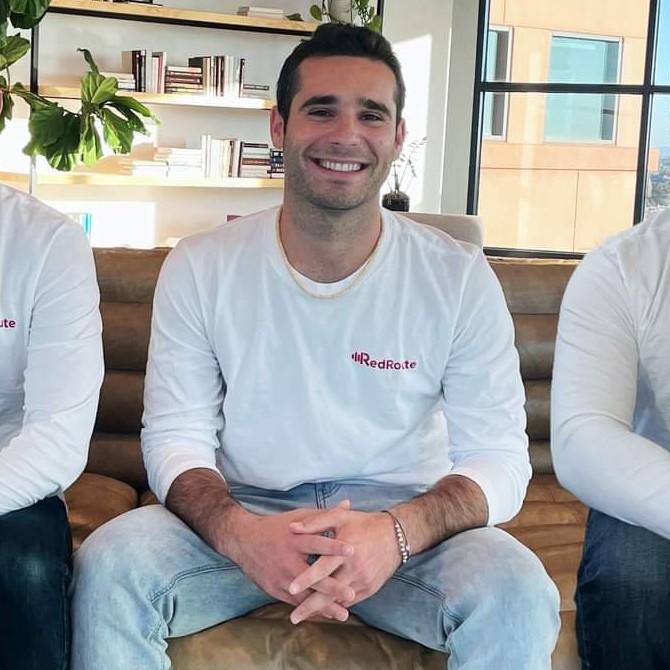
Brian Schiff
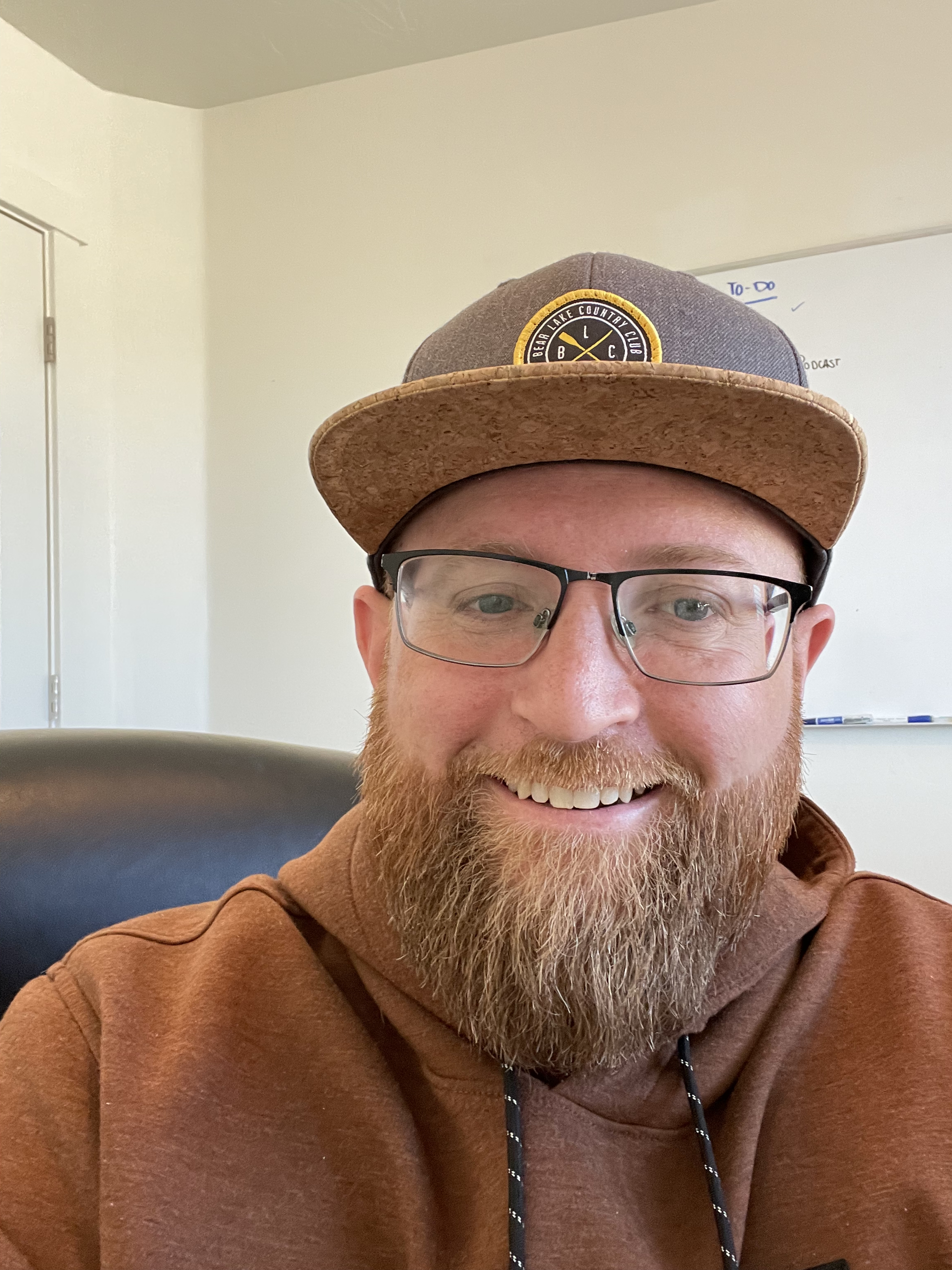
James Gilbert
Today's Guests


